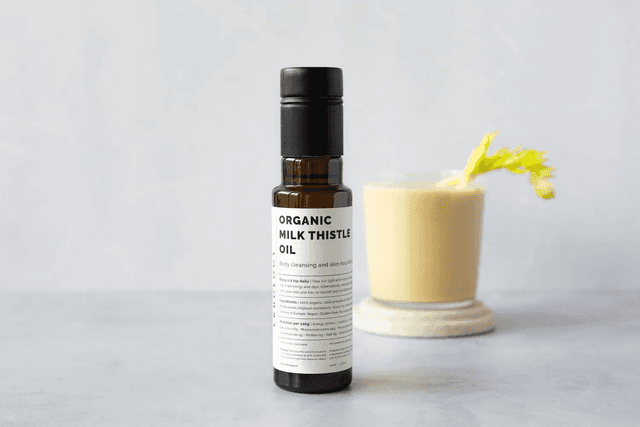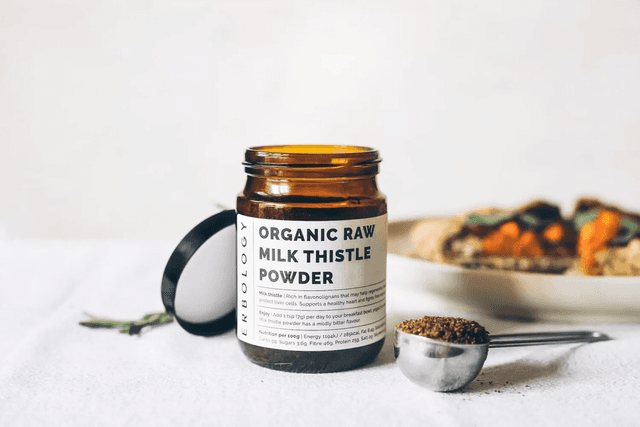02 Mar 2021
Milk thistle for hangover: does it work?
What causes a hangover?
A ‘hangover’ is a term to describe the general feeling of illness that follows a night of drinking. Typically, you can expect a bad headache, nausea, dry mouth, extreme thirst and even vertigo.
Dehydration is at the root of many of these symptoms, as alcohol is a diuretic. This means it encourages you to urinate more, expelling liquid from your body and leaving you dehydrated. Astonishingly, 50g of alcohol mixed with 250ml water (approximately four drinks) could lead you to lose up to a litre of liquid!(1)
Losing so much water can also result in an electrolyte imbalance. This can lead to other unpleasant symptoms such as an irregular heartbeat.
Alcohol also irritates the lining of your stomach, which causes inflammation and increased production of stomach acid. This explains why you might feel nauseous, or get stomach or chest pain, when you have a hangover.(1)
Meanwhile, fatigue, weakness and mood disruption are probably due to low blood sugar, which is caused by the way alcohol disrupts your liver function.(1)
While we're no strangers to a hangover ourselves, it's important to remind the reader that drinking alcohol in excess can be damaging to your health; the best defence against a hangover is simply to drink sensibly, or not at all.
https://www.youtube.com/watch?v=vRHk9A6PPj0
The endless search for a hangover cure
Understandably, a lot of people are interested in finding a cure for these unpleasant symptoms. A lot of different remedies have been touted as hangover cures.
Some of the most popular include a Bloody Mary cocktail, fried foods, raw egg yolks, fruit juice, supplements and sports drinks.
But there’s little clinical evidence for any of them.
For example, one recent review of fifteen relevant trials on remedies such as prickly pear, dried yeast and borage found that there was no evidence that any of them worked to prevent or treat a hangover.(2)
In fact, a lot of scientists have flagged that it might not actually be a good idea to find a cure for hangovers. Think about it: if there were no negative consequences to drinking in excess, wouldn’t more people feel able to do it?
However, that doesn’t stop researchers from looking into it - the demand is simply too high to ignore!
How can using milk thistle for hangovers help?
The reason that milk thistle is often used as a hangover cure is that it has been traditionally used to cleanse and detox the body.
Silymarin, which is the main bioactive component of milk thistle, is a powerful antioxidant. This means it can help prevent the damage caused by excess free radicals in the body.(3)
Alcohol consumption increases the amount of free radicals circulating around your cells, so in that sense milk thistle might be of help.
What’s more, milk thistle has anti-inflammatory properties, which can help calm the inflammation caused in your stomach and other areas of the body by alcohol.(3)
Related reading
What about damage to your liver?
As we know, drinking alcohol in excess can cause major problems for your liver.
Your liver is an amazing organ, and the only one which is capable of regeneration. That means if it gets damaged, it can generate new cells to repair itself.
However, if you drink lots of alcohol regularly, you could be reducing your liver’s ability to do this.
In fact, even drinking heavily over just a few days can trigger build-ups of fat in your liver; the first sign of liver disease.(4)
Milk thistle is thought to have some hepatoprotective (liver-protecting) properties.


